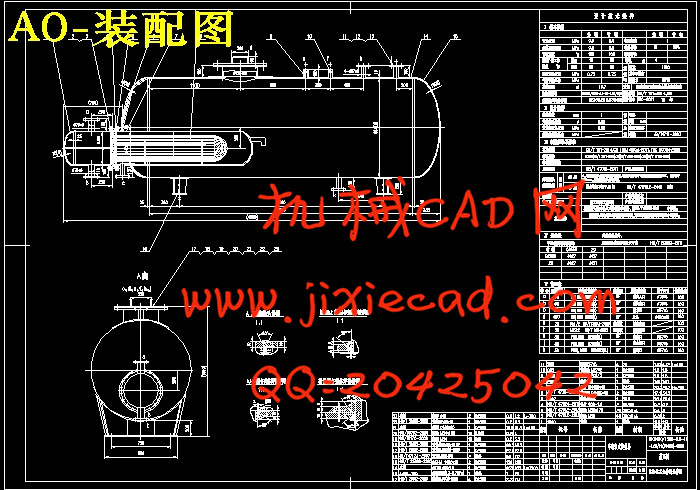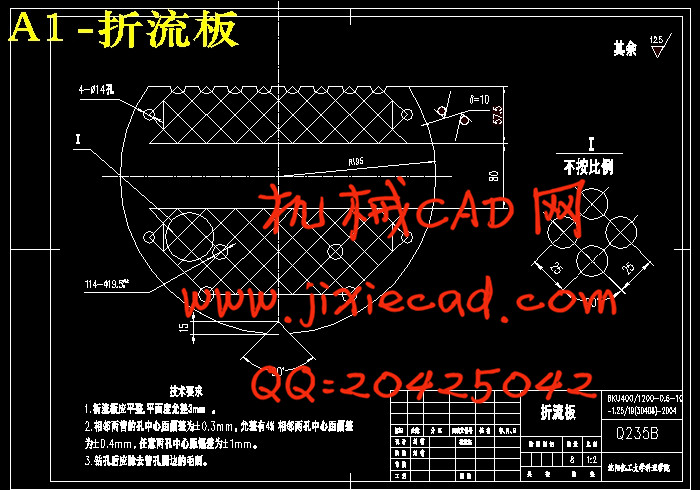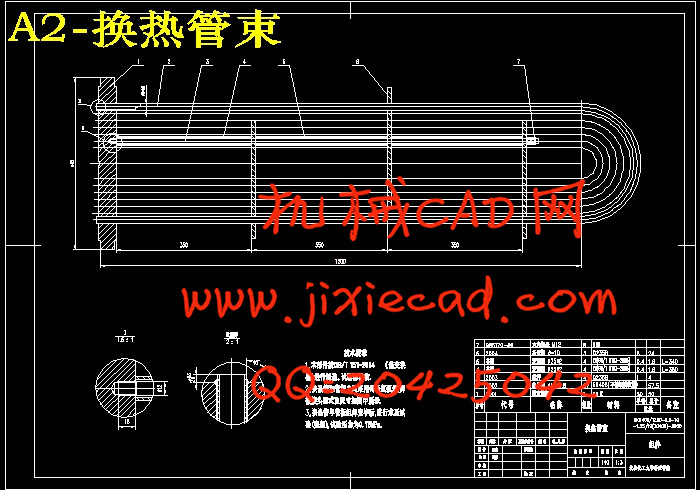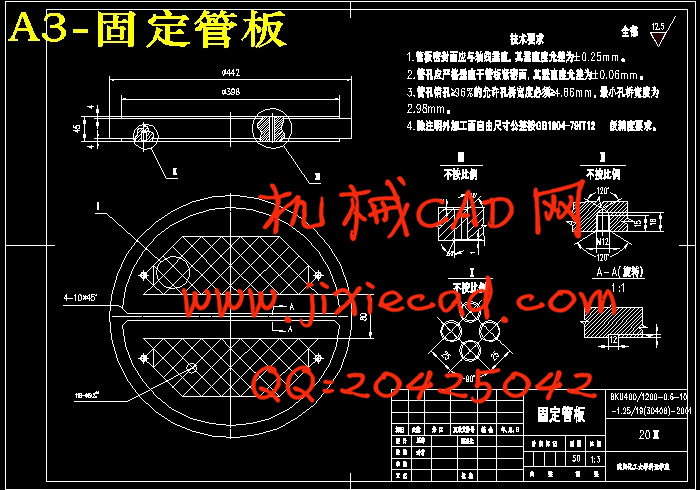设计简介
摘要
物料之间传递热量需要换热器,因此,换热器的设计是一个关键的步骤。随着我国国民经济的飞速发展,在化工,化肥,炼油,制药,冶金,电力等行业都有着广泛的应用。在上述行业中,换热器的投资所占比重很大,约占到企业投资的35-40%,数量上也远远多于其他设备。换热器作为上述行业的通用设备,在企业生产中占有十分重要的地位。锁着国家科学技术的发展,对能源利用,开发和节约的要求不断提高,因而对换热器的要求也日渐加强。一台换热器产品的设计,应符合企业实际生产需要。对着国际科学技术的发展,对换热器的研究水品也有了显著的提高。换热器的设计,制造,结构改进和以及传热机理的研究也十分活跃。列管式换热器的应用有着悠久的历史,即使现代,列管式换热器作为一款传统的标准换热设备在很多工业部门中有着广泛的使用和深远的影响。尤其在化工,化肥,炼油,等传统工业领域所实用的设备中,列管式换热器仍占据着主导地位。
欧美发达国家于20世纪80年代起开始竞相开发、研制各种型式的换热器。我国对各种新型换热器的研究虽然起步较晚,但经过对国外换热器的借鉴、消化、吸收,也得到了飞速的发展。我国科技工作者也加快了自主研发新型节能换热器的步伐,我国很多大型石化公司和设计院的新型换热器产品如板壳式换热器、蒸发式空冷器、波节管换热器等不断获得国际大奖并出口应用于国外大型设备和厂家。
物料之间传递热量需要换热器,因此,换热器的设计是一个关键的步骤。随着我国国民经济的飞速发展,在化工,化肥,炼油,制药,冶金,电力等行业都有着广泛的应用。在上述行业中,换热器的投资所占比重很大,约占到企业投资的35-40%,数量上也远远多于其他设备。换热器作为上述行业的通用设备,在企业生产中占有十分重要的地位。锁着国家科学技术的发展,对能源利用,开发和节约的要求不断提高,因而对换热器的要求也日渐加强。一台换热器产品的设计,应符合企业实际生产需要。对着国际科学技术的发展,对换热器的研究水品也有了显著的提高。换热器的设计,制造,结构改进和以及传热机理的研究也十分活跃。列管式换热器的应用有着悠久的历史,即使现代,列管式换热器作为一款传统的标准换热设备在很多工业部门中有着广泛的使用和深远的影响。尤其在化工,化肥,炼油,等传统工业领域所实用的设备中,列管式换热器仍占据着主导地位。
欧美发达国家于20世纪80年代起开始竞相开发、研制各种型式的换热器。我国对各种新型换热器的研究虽然起步较晚,但经过对国外换热器的借鉴、消化、吸收,也得到了飞速的发展。我国科技工作者也加快了自主研发新型节能换热器的步伐,我国很多大型石化公司和设计院的新型换热器产品如板壳式换热器、蒸发式空冷器、波节管换热器等不断获得国际大奖并出口应用于国外大型设备和厂家。
随着近年对设备环保、节能的要求越来越高,如果有效利用工业余热废热成为研究的热门问题,同时随着人民生活水平的提升,对热水供暖的需求加大,快速传热,稳定供热的环保设备得到更多的认可。而半容积式换热器具有的换热快速,传热系数高,换热量大,容积利用率大,节能,节省空间等优点。[1]
关键词: 换热器设计; 自主研发; 环保; 节能
Abstract
关键词: 换热器设计; 自主研发; 环保; 节能
Abstract
Heat transfer between the material need heat exchanger, therefore, the design of heat exchanger is a key step. With the rapid development of national economy in our country, in the chemical, fertilizer, oil refining, pharmaceutical, metallurgy, electric power and other industries have a wide range of applications. Heat exchanger in the industry, investment proportion is very big, about 35-40% of the enterprise investment, the number is far more than other devices. General equipment, heat exchanger as the industry occupies an important position in the enterprise production. Locked state science and technology development, the energy utilization, the requirement of increasing the development and conservation, and also to the requirement of heat exchanger intensified. A heat exchanger in the design of the product, should conform to the enterprise actual production needs. The development of the international science and technology, the study of heat exchanger water quality has improved significantly. Heat exchanger design, manufacture, structure improvement and the research and the heat transfer mechanism is also very active. The application of shell and tube heat exchanger has a long history, even modern, shell and tube heat exchanger for a traditional standard heat exchange equipment has been widely used in many industrial sectors and far-reaching influence. Especially in chemical, fertilizer, oil refining, traditional industries such as the practical equipment, shell and tube heat exchanger is still dominant.
European and American developed country in the 1980 s began to development, to develop various types of heat exchanger. Though the study of all kinds of new type heat exchanger in our country starts relatively late, but after a reference, digestion, absorption of foreign heat exchangers, also got rapid development. China's science and technology workers also accelerated the pace of independent research and development of new energy saving heat exchanger, many large petrochemical company and design institute in China, a new type of heat exchanger products such as plate heat exchanger evaporative air cooler, bellows tube heat exchanger and other international awards and export used in large foreign equipment and
As in recent years, more and more high to the requirement of equipment, environmental protection, energy saving, if the effective utilization of industrial waste heat heat become research hot topic, at the same time as people's living standards improve, the demand for hot water heating, rapid heat transfer, environmental protection equipment stable heating to get more recognition. And half volume heat exchanger with heat fast, high coefficient of heat transfer, heat transfer, volumetric efficiency, saving energy, saving space, etc.
European and American developed country in the 1980 s began to development, to develop various types of heat exchanger. Though the study of all kinds of new type heat exchanger in our country starts relatively late, but after a reference, digestion, absorption of foreign heat exchangers, also got rapid development. China's science and technology workers also accelerated the pace of independent research and development of new energy saving heat exchanger, many large petrochemical company and design institute in China, a new type of heat exchanger products such as plate heat exchanger evaporative air cooler, bellows tube heat exchanger and other international awards and export used in large foreign equipment and
As in recent years, more and more high to the requirement of equipment, environmental protection, energy saving, if the effective utilization of industrial waste heat heat become research hot topic, at the same time as people's living standards improve, the demand for hot water heating, rapid heat transfer, environmental protection equipment stable heating to get more recognition. And half volume heat exchanger with heat fast, high coefficient of heat transfer, heat transfer, volumetric efficiency, saving energy, saving space, etc.
Key words: The heat exchanger design; Independent research and development; Environmental protection ; Energy saving
目 录
第一章工艺计算 1目 录
1.1 设计条件 1
1.2 确定物性参数 1
1.3 确定传热面积 1
1.4 平均温度差 2
1.5 总传热系数 K 2
1.6 估算换热量及产热水量 2
1.7 校核传热系数 K 3
1.7.1 壳程换热系数α0 3
1.7.2 折流板的切除高度 3
1.7.3 折流板的弓形面积 3
1.7.4 管子的横截面积与壳体的横截面积之比 4
1.7.5 圆缺区内的流通面积 4
1.7.6 几何平均流通面积 4
1.7.7 几何平均流速 4
1.7.8 几何平均雷诺数 4
1.7.9 壳程平均换热系数 4
1.7.10 管程的平均换热系数 5
1.7.11 传热系数K 5
1.8 计算压力降 5
1.8.1 管程压力降ΔPi 5
1.8.2 壳程压力降
1.9 本章小结 9
第二章U 型管换热器结构设计 10
2.1 筒体的内径确定 10
2.2 管板与换热管 10
2.3 折流板 10
2.4 拉杆与定距管 11
2.4.1 拉杆 11
2.4.2 定距管 11
2.4.3 折流板、拉杆、定距管的连接 11
2.5 设计堰板防短路 12
2.6 法兰的选用 12
2.6.1 接管法兰选用 12
2.7 垫片 12
2.8 支座 12
2.9 本章小结 12
第三章强度校核 14
3.1 换热器壳体计算 14
3.1.1 筒体 14
3.1.2 封头 14
3.2 罐体计算 14
3.2.1 罐体 14
3.2.2 封头 15
3.3 开孔补强设计 15
3.3.1 接管h,j 16
3.3.2 接管a,b 16
3.4 U型管换热器开孔 16
3.4.1 椭圆形封头非中心孔处部位补强的计算 16
3.5 椭圆封头计算直径 17
3.5.1 接管周围封头补强区的计算宽度 17
3.5.2 接管外侧补强设计高度 17
3.5.3 接管内侧补强区计算高度 17
3.5.4 计算结果 17
3.5.5 封头因开孔削弱需要补强的面积 18
3.5.6 封头多余金属面积 18
3.5.7 补强圈的金属面积 18
3.5.8 接管外侧多余金属面积 18
3.5.9 接管内侧金属面积 18
3.5.10 一个孔需要补强面积 18
3.6 补强圈设计 18
3.6.1 人孔开孔 18
3.6.2 补强及补强方法的判别 19
3.6.3 开孔所需补强的面积 19
3.6.4 接管多余金属面积 19
3.6.5 有效补强面积壳体的有效厚度 20
3.6.6 有效补强面积A4 20
3.7 罐体水压试验及其壳体的强度校核 21
3.8 换热器管程水压试验及其壳体的强度校核 21
3.9 管板校核 22
3.10 本章小结 24
第四章制造、检验、安装与维修 25
4.1 概述 25
4.2 材料验收 25
4.3 筒体的制造 25
4.4 封头的制造 26
4.5 管板的制造 27
4.6 管束的制造 27
4.7 接管的制造 28
4.8 装配 28
4.8.1 筒体、法兰的组装与焊接 28
4.8.2 管箱的组装、焊接与加工 28
4.9 油漆、包装 29
4.10 热器在使用中常见故障及处理 29
4.10.1 原因 29
4.10.2 现象 29
4.10.3 处理 29
结论 31
参考文献 32
致谢 33






